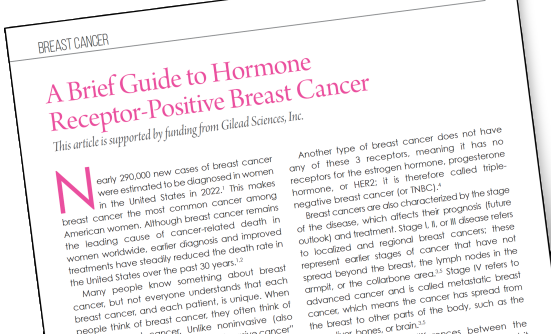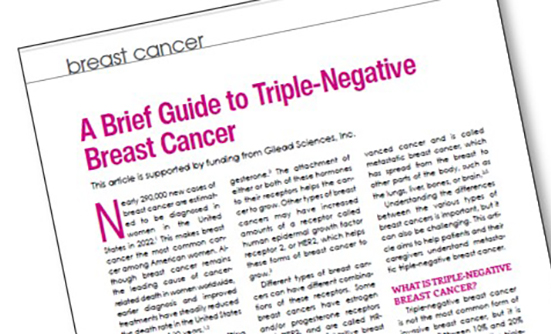To date, 3 CDK4/6 inhibitors have been approved by the FDA for the treatment of patients with breast cancer: palbociclib (Ibrance), ribociclib (Kisqali), and abemaciclib (Verzenio). These agents work by blocking the function of proteins CDK4 and CDK6, both which drive cell multiplication, thereby fueling tumor growth.
Treatment with CDK4/6 inhibitors appears to have the same efficacy in older patients with breast cancer, compared with younger ones, according to new findings presented at the 2017 San Antonio Breast Cancer Symposium.
“As we approve new drugs to treat cancer, it is important to try to improve our understanding of the efficacy and safety of these drugs in our older patients,” said the study’s lead investigator, Harpreet Singh, MD, Medical Officer, Scientific Liaison, Cancer in Older Adults, Office of Hematology and Oncology Products, FDA. “Older patients traditionally have been underrepresented in oncology clinical trials, so pooling outcomes of older patients across clinical trials in the same drug class allows us to gain insight into how these patients may benefit.”
To determine the efficacy and safety of CDK4/6 inhibitors in an older population, Dr Singh and colleagues pooled and analyzed data from randomized controlled trials that evaluated the 3 FDA-approved CDK4/6 inhibitors in combination with an aromatase inhibitor, as the first-line treatment for postmenopausal women with hormone receptor–positive metastatic breast cancer. The cohort included 1334 patients (intention-to-treat population, 1992), of whom 42% were aged ≥65 years, and 24% were ≥70 years.
The primary end point of the study was progression-free survival (PFS) in patients aged ≥70 years, and in control groups.
In patients aged ≥70 years who were treated with a CDK4/6 inhibitor in combination with an aromatase inhibitor, the estimated PFS was not reached, compared with an estimated PFS of 16.8 months for those treated only with an aromatase inhibitor.
In patients aged <70 years who were treated with a CDK4/6 inhibitor, the estimated PFS was 23.8 months, compared with an estimated 13.8 months for those treated only with an aromatase inhibitor.
The researchers also evaluated safety in 1106 patients who received ≥1 doses of a CDK4/6 inhibitor.
Older patients were more likely than the younger patients to discontinue treatment because of side effects. Twenty percent of the patients aged <70 years discontinued treatment, compared with 17% of patients aged ≥65 years and 8% of those aged <65 years. The most common events that led to discontinuation of treatment across all age-groups were infection, fatigue, blood count abnormalities (neutropenia), liver enzyme abnormalities, and diarrhea.
“Our findings suggest that there is no treatment difference across age subgroups in terms of efficacy of CDK4/6 inhibitors,” Dr Singh said. “This is an important piece of information as health care providers and patients weigh their treatment options as new therapies are approved.”
A co-investigator on the study, Lynn Howie, MD, a medical officer in the FDA Center for Drug Evaluation and Research, Office of Hematology and Oncology Products, added that the potential benefit of a CDK4/6 inhibitor for older patients with breast cancer should be weighed against the increased risk for toxicity. In addition to the higher rates of discontinuation of treatment, older patients often required more dose modifications to help them manage side effects.
Source:
Singh H, Howie LJ, Bloomquist E, et al. A U.S. Food and Drug Administration pooled analysis of outcomes of older women with hormone-receptor positive metastatic breast cancer treated with a CDK4/6 inhibitor as initial endocrine based therapy. Presented at: 2017 San Antonio Breast Cancer Symposium; December 5-9, 2017. Abstract GS5-06.















